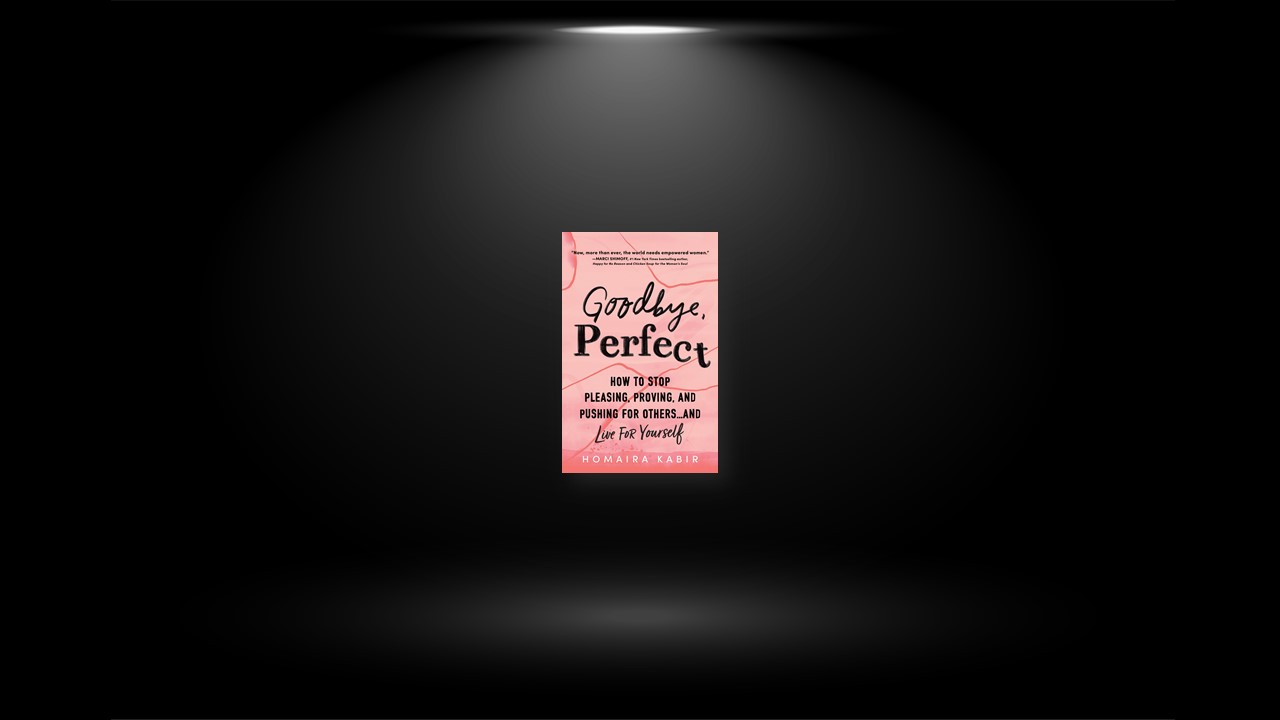THE PERENNIAL PURSUIT
Fragile confidence is different from low confidence, where our conscious thoughts and beliefs about ourselves tend to be negative. Instead, it’s positive thoughts and self-evaluations that lack a deep-seated sense of trust in the goodness in our hearts and the gifts our lives embody. Sometimes, fragile confidence can even look like excessive self-assurance.
Optimal confidence, on the other hand, is a healthy alignment of what we think and how we feel about ourselves. We’re far less impacted by negative feedback, because it’s mitigated by that intuitive trust we have in our sense of self-worth.
This trust doesn’t live in our heads; it’s a “felt sense” that lives in the more inaccessible parts of our brains, also called the implicit or subconscious world. As such, it’s visceral, irrational, logically indefensible, and resistant to feedback that doesn’t align with it. When we trust that regardless of success, failure, and praise or criticism, we are worthy of being loved and valued for who we are, we can go after our heartfelt desires without stressing so much about what others would think or say.
When we receive positive feedback (success, praise, moments of connection, etc.) we’re not driven to shout our achievements from the rooftops because it’s not news to our subconscious brains. We can evaluate ourselves positively (I’m a good person, I did the right thing, I’m strong at presentations), and these positive self-evaluations naturally sink into our implicit memory because they’re aligned with our internal stories about ourselves. And when we don’t get positive feedback—we all get our fair share of failures and criticism, especially when pursuing any worthwhile endeavor—we don’t spiral down into shame and blame, because we have the buffers of our implicit beliefs to break the fall.
Say your mom casually says something negative about your parenting. Nothing huge, maybe a passing remark that your little one’s eczema is because you didn’t drink enough milk during your pregnancy. Or that if you spent more time with your teenager, she wouldn’t sulk as much as she does. Of course, you get triggered. Of course, you want to tell your mom to keep her opinions to herself. Maybe you also start questioning your parenting or feeling guilty about the eczema or the sulking. None of this is wrong. In fact, it would be weird if you didn’t feel anything. Our emotions show that we care.
But trusting your goodness and capabilities provides a safe landing for negative feedback, because it doesn’t feed it with your own. You can take other people’s comments or life’s setbacks in stride, place them in the larger picture, learn from them if you need to, and let go of them if you don’t. As Jonathan Brown at the University of Washington explained, self-trust allows you to fail without feeling bad about yourself.
THE PERPETUAL YO-YO
Without empowering implicit beliefs, we become dependent on external feedback to feel good about ourselves. The approval-seeking, the proving, and the addiction to praise, pleasing, perfection, power, productivity, or a combination of them all are about concealing an inner inadequacy or shame that we may or may not be aware of. They’re about a felt sense that we’re not worthy of love and acceptance unless we’re doing something that makes us so.
When we receive positive feedback for our efforts, our self-evaluations and emotions in the moment are positive, sometimes excessively so, because they aren’t aligned with what we intuitively believe about ourselves. Perhaps we’ve surprised ourselves, and we want the whole world to know about it! This is the high of fragile confidence, buoyed by praise, approval, and success.
Our experience of fragile confidence is more like being on an emotional roller-coaster of high and low confidence. Negative feedback touches upon a perceived and painful truth that isn’t far from conscious awareness because of constant reminders of how we fail to measure up in some, usually undefined, way. Instead of feeling bad or unhappy, we feel ashamed or depressed, because we’re feeding the external judgment with our own. Some of us beat down on ourselves or engage in pleasing and appeasing behaviors, the classic low confidence response. Others blame, dismiss, justify, or seek sympathy, common reactions in fragile confidence. For women in particular, shame and blame are two sides of the same coin and often happen together.
Positive feedback on the other hand, despite the initial high, triggers one of two common patterns. The classic fragile confidence reaction is to try and mine the positive feedback in subtle ways, like overplaying the challenges we faced or being stingy with the credit we give to our teams or to those who helped us succeed. When the praise doesn’t match the need for it, we can start feeling unseen and unappreciated, victimized even, which leads to anger or feelings of resentment.
The low confidence response is the dread of being found out to be a fraud, or what we commonly call impostor syndrome. How will I do this again? It was pure luck. How do I make sure they don’t find out? The research shows that impostor syndrome is highly correlated with low confidence because positive feedback doesn’t match our conscious negative beliefs. Research also shows that it is highly correlated with a yo-yoing sense of confidence, which is how fragile confidence shows up for most women.
It’s why most of us stay up at night perfecting a presentation that’s already great. Or why we refuse to apply for a job or negotiate a raise until we’ve amassed more qualifications and more proof than is needed or necessary. We cannot take risks unless we have guaranteed our success, because failure touches upon a painful perceived truth. And the sad reality is that untested beliefs stay intact.
AN UNSPOKEN RESISTANCE
The implicit world is extremely powerful in driving our behaviors because it is the first point of contact with the external world. What happens thereon is a series of automatic events that are purely orchestrated for our survival.
The implicit world has one key job: to use past experiences to predict what’s about to happen next and generate an emotion that motivates us to act. None of us has any say or control over its workings; its processes are automatic, urgent, and faster than ever, honed over millennia to ensure our survival. When it senses threat, the emotion it activates is very powerful; there’s no time to think when we need to run for our lives.
If you struggle with impostor syndrome, your emotions will be accompanied by your thoughts because they’re explicit. If you can manage your emotions, you can work with these thoughts and reason with yourself. You can remind yourself of why you’re the right person for the job you want or why having a certain conversation is important for your relationship. It’ll still take courage to do so, but at least you have the awareness to begin.
But when beliefs are purely implicit and hidden from conscious awareness, we react almost instantly to our emotions. By the time the relatively slower rational brain catches up, thoughts take on the role of justifying what we did or have decided to do. This is something the human brain does particularly well. In fact, Scottish philosopher David Hume described reason as the “slave of the passions,” passion being the visceral reactions driven by our impulses, beliefs, and emotions.
When implicit beliefs don’t make themselves heard, we keep digging the hole deeper for ourselves because we refuse to take responsibility for our part. Of the two evils, I would rather hear my voice of self-doubt than walk the world as though it owed me something. But luckily we don’t have to choose between two evils; we can each walk the world knowing we belong. We can each trust in the deepest recesses of our being that we are worthy of our place in the circle of life. That is the home of optimal confidence.
UNDERSTANDING OPTIMAL CONFIDENCE
The research defined optimal confidence as a psychological construct comprising of two sequential components: belonging and mastery. Belonging precedes mastery because safety in a relationship is essential for speaking up, taking risks and thus developing the sense that we can deal with whatever comes our way. As such, attachment style directly impacts belonging, and by consequence, mastery as well.
In anxious attachment, both belonging and mastery are suboptimal. We’re desperate to be liked and thus do not take the risks that can help us grow. Avoidant attachment, on the other hand, lacks belonging, but mastery can be possible because we’re eager to prove ourselves. It’s not a given though, because the hurdles are many and the pressure can be crippling. Even if it were to happen, it’s devoid of joy because belonging is intrinsic to a woman’s sense of fulfillment.
Since the components of belonging and mastery are implicit, they need a little explaining to be fully understood. Belonging is different from reflected appraisals and feedback because they represent our conscious perception of how we’re viewed by others. It’s more intuitive and can best be experienced as an inner sense of security when we’re around others. Secure attachment provides this inner sense of security, which then generalizes to other people and makes us feel safe in our relationships.
often admit to having a supportive boss or team they’re working with. But they still struggle to voice their ideas or ask for what they need. In fact, without a felt sense of belonging, the support they receive can become a source of dismay; they blame themselves for their stagnation, and this certainly doesn’t work wonders for their confidence.
The same applies to mastery. We often confuse mastery with competence, even though it’s a much broader construct. Mastery isn’t about being on the dean’s list or being the youngest senior-level manager at the firm. Nor is it about having great credentials in a certain niche or the best expertise at a certain task. It’s about trusting our instinctive desires and having the courage to learn and grow in the pursuit of what feels intrinsically rewarding.
Think of it as a child making sandcastles on the beach. There’s no self-evaluation involved. There’s no inner critic telling her that her sandcastle looks like it’s about to fall or that it doesn’t measure up to her older sister’s perfect one. There’s simply the joy of being engaged in what she loves, the courage to put her ideas into practice, and the openness to feedback from the very act of creating.


